
Serving the Church in the South West





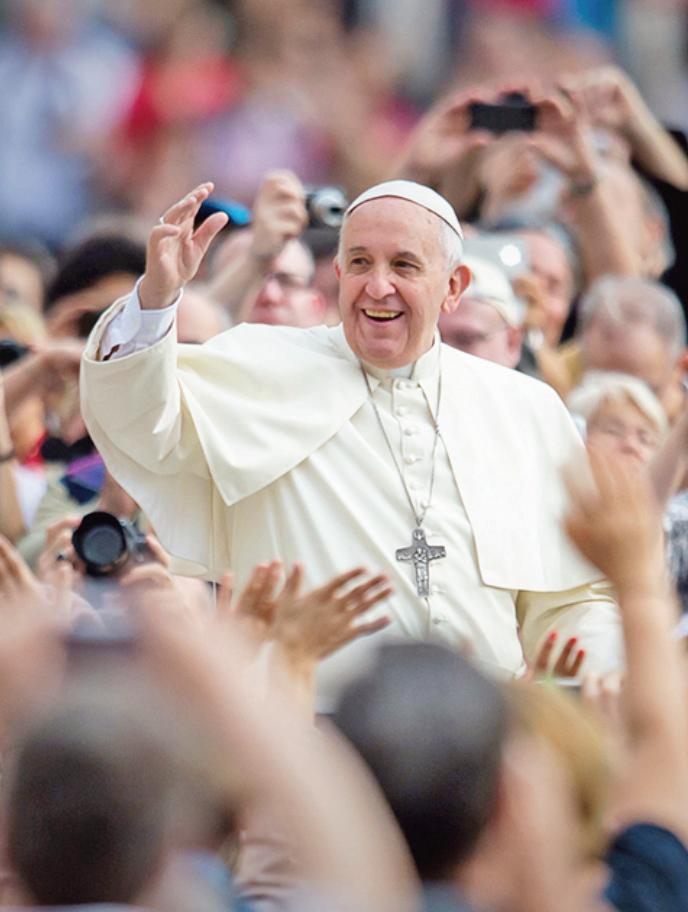








17 December 1936 - 21 April 2025

Catholic South West is a monthly newspaper for Catholics in the Plymouth, Clifton and Portsmouth Dioceses It is published by Bellcourt Ltd
To build community in the South West by sharing stories relating to Catholic life around the South West
To encourage readers to get more involved in - or start - projects and initiatives in the local area
To provide thought-provoking articles to help readers deepen their Faith
We need your help! Articles: We need your local articleswe can only include what we get So if you have an article or just a photo with a short description - please send it in Ideas: We need your ideas for the paper and we need your ideas in the paper If you have any thoughts on what we should include - or if you are thinking about starting a new initiative - get in touch - we’d love to support it!
Readers: If you can encourage other readers in your parish please do so Advertising: We rely on advertising - if you know of anyone that would benefit from promoting their business, event or anything else to parishioners throughout the South West, do let us know.
SUBMITTING
To send in editorial or to get in touch please contact us at: CSW - Bellcourt Ltd
N2 Blois Meadow Business Centre Steeple Bumpstead Haverhill, Suffolk CB9 7BN
csw@cathcom org 01440 730399
To advertise in Catholic South West please contact us on 01440 730399 ads@cathcom.org
Catholic South West goes to parishes on the last full weekend of the month It is printed around the middle of the month - so if you would like to advertise or send in editorial please do it as early as possible
The Catholic South West is looking for a Parish Correspondent in your parish to send in local news for publication in this newspaper. All items to be emailed to csw@cathcom org before 10th of the month
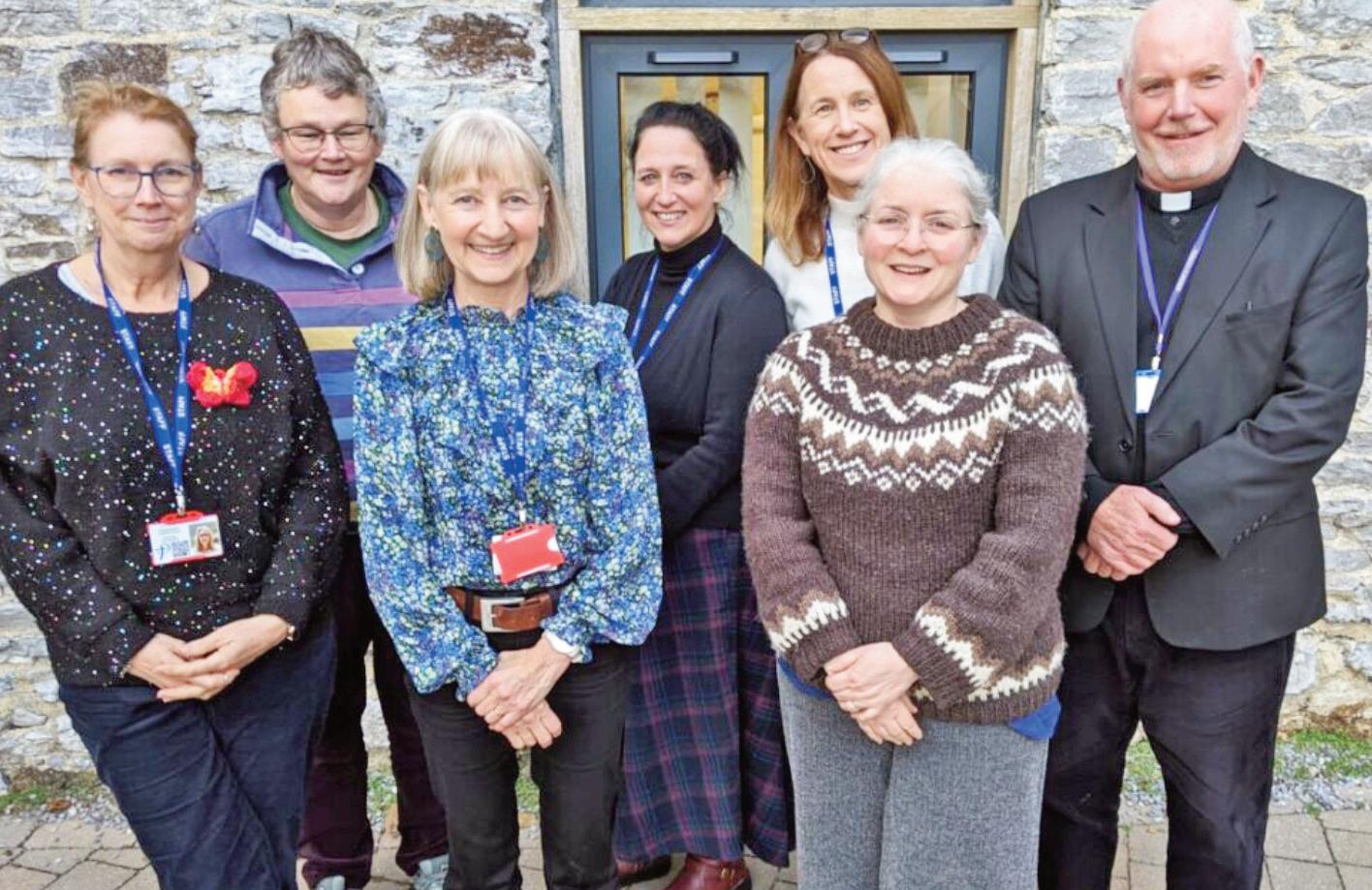
‘And God is able to provide you with every blessing in abundance, so that by always having enough of everything, you may share abundantly in every good work.’ 2 Corinthians 9:8
I will be retiring from my role as manager of Caritas Diocese of Plymouth after an amazing five years and wanted to share some reflections on the growth of the work of Caritas in the Diocese of Plymouth.
Caritas was set up in 2019 by Bishop Mark O’Toole as an agency of the Diocese of Plymouth charged with putting the Church’s Social Teaching into action and providing a network for sharing good practice and encouraging new initiatives. When I started the role (a few days before COVID lockdown), I was the only Caritas staff member. During that difficult time, Caritas was able to distribute over £80,000 of crisis grants to people in need and offer other resources and support to parishes and schools.
Thanks to the wonderful support and encouragement of the diocese, we are now a team of six people. Our work is very varied but is always focused on the service of the most poor and vulnerable and promoting the common good.
1) Think of the readers: If you are writing about an event, think about the readers that don’t know anything about it Outline what happened, but focus on why people go, why it is important to them, or some teaching that was given Make sure readers learn something from your article - they don t just want
It is a real privilege to work alongside our parishes, schools and other charities and heartening to see how the Mission of Charity is alive and well across the Diocese of Plymouth. There are so many people in our diocese who are struggling with poverty, isolation or marginalisation. Our role is to look for new ways to reach those in need. We share ideas and good practice through formation and education: running events and workshops to identify local unmet needs and to pray and reflect on our call to respond. We provide signposting on issues such as cost of living and ageing and support parish groups to undertake direct social action e.g. through community sponsorship, running a foodbank or creating new social opportunities for people who are isolated. We seek to create new opportunities to fulfil our role as stewards of Creation and develop new environmental initiatives. We work closely with partners including Catholic Children’s Society Plymouth and St Vincent de Paul, who do so much wonderful work at the grassroots. We also collaborate with our diocesan schools
to know who was there and what snacks were available!
2) Keep it brief: Make sure you make your point - but keep it brief and punchy
3) Pictures: Send pictures as they are - even if they are very big to email Don’t reduce them in size or put them inside a Word document They look fine on the screen but terrible in the paper!
who are a great example of faith in action. All our work is underpinned by the Gospel imperative to ‘love one another as I have loved you’. This core principle has given me and the team the opportunity to be open to new ideas, to test out innovative approaches (which don’t always work) and to do our best, working with others, to respond to Jesus’ example and teaching. There are plenty of facts and figures about what we do, but why we do this work – to be of service to others – is what makes this such an amazing role.
The diocese is now recruiting a new Head of Caritas and you can find out more about this role by scanning the QR code below.

Please note that opinions expressed in this paper and on any linked sites or publications are not necessarily those of the Publishers, Editor, any Diocese or the wider Roman Catholic Church Every reasonable effort is
made to ensure that due acknowledgement, when appropriate, is made to the originator of any image submitted for publication It is understood that those submitting material for publication in CSW either hold the copyright or have arranged for publication with the appropriate authority
The first half term of this year has seen our Plymouth CAST schools focusing on Care for Creation. As one of the main social action themes for the Year of Jubilee, schools have been looking at how we become good stewards of the earth.
Keyham Barton school welcomed the Art and Energy collective to explore mosses and their important role in soaking up and storing the carbon that we release into the atmosphere. The children spent time gazing through magnifying glasses to see the tiny elements of these diverse plants. They heard how important this flora is for our wellbeing and how it purifies our air, can help prevent flooding, as well as nurturing other plants to grow. The children took the opportunity to record messages of ways in which they intend to make a difference in this world. The children even tried to make their own microscope by layering three magnifying glasses together to get a closer look. They commented on the small flowers growing on some mosses, and were excited to discover little creatures living in the samples and spoke about places that they had spotted these mosses for themselves. They then added to a large artwork called ‘The Mossy carpet’. This piece has over 70,000 contributors and has created 70 meters of carpet which will be shared at COP 30 this year.
The children have been inspired to take a closer look at and think about their
“The earth is the Lord’s, and everything in it, the world, and all who live in it.” Psalm 24:1
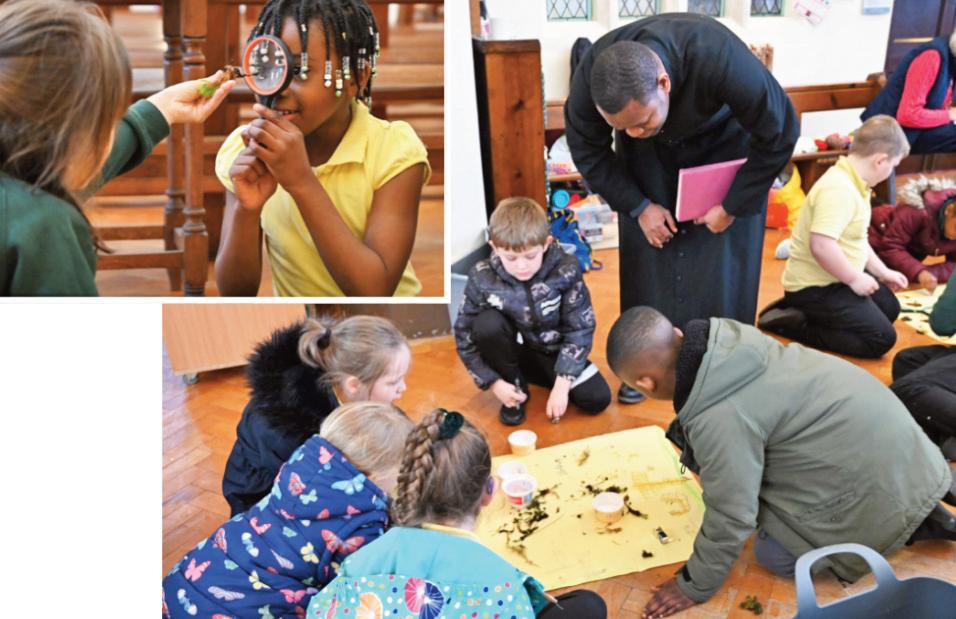
impact on their surroundings. We encourage everyone to use this Jubilee Year to think about the small actions you can take to make to care for our common home.
If your parish would like to form a group to explore this theme for the Jubilee then please do get in touch with caritas@prcdtr.org.uk
Philomena Rookes has been in our congregation for many years. She always sits at the front and is always immaculately dressed in bright colours - blue, red or pink. She is in her 90s and last year she went to America for a family wedding and at the reception was seen dancing with the Irish priest living there in America. Everyone loves her and she is an asset to our parish here at Our Lady Star of the Sea, Weymouth.
Esme Nicholls
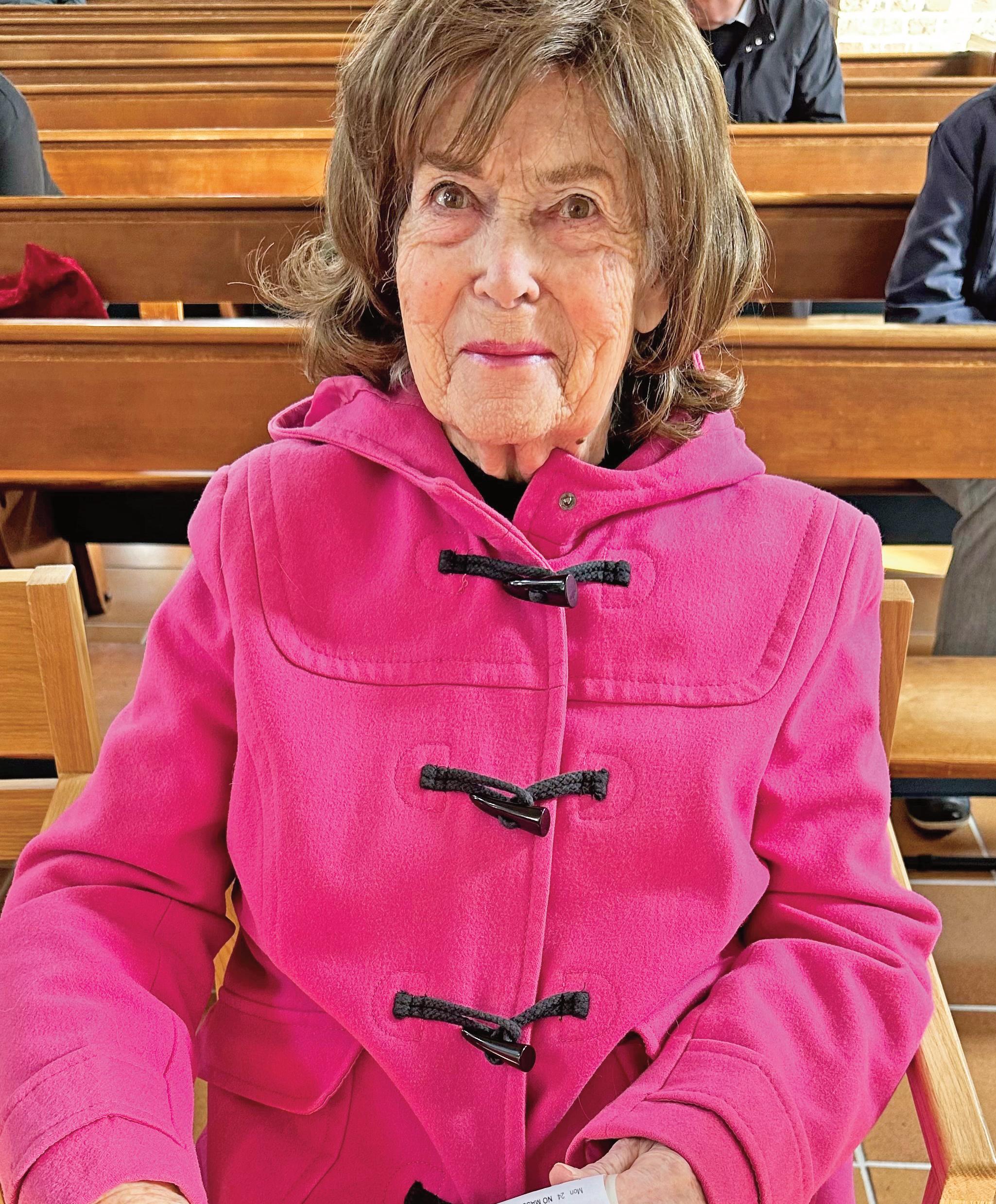




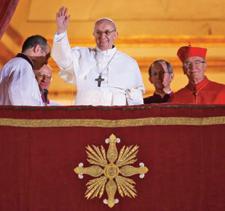
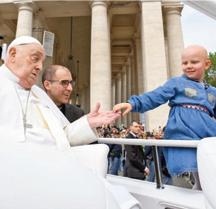

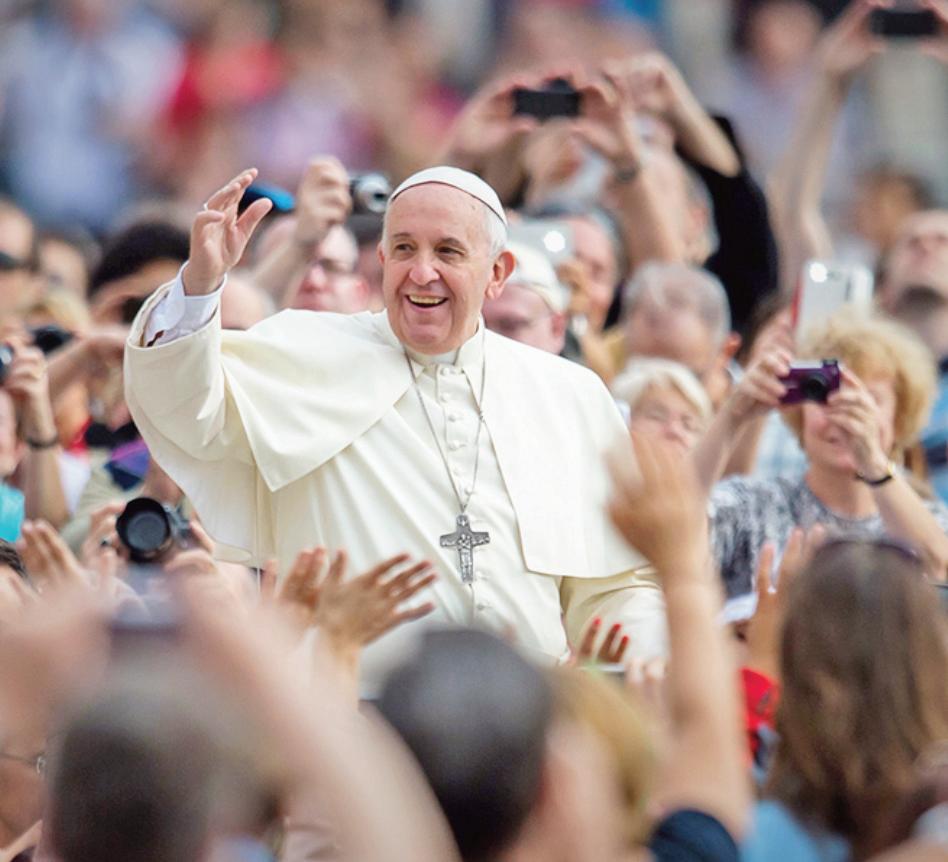


We were meant to take the ‘trip of a lifetime’ back in March 2020 for Lisa’s (my long-haired boss’s) big birthday. But Covid had other ideas, and our friend Boris told us all to go to our rooms. So instead of the tropical island of Koh Samui, we celebrated in our back garden in sweet little Plymouth — how life has changed since then.
Back then, we joked, “We’ll go for your 55th!”
Well, here we are. Five years later. And we finally made it.
Thailand — and Asia more broadly — offers a culture very different from our Western European ways. And we love it.
The food, the weather, the people, the belief systems — it’s all so vibrant, so friendly, and yet strangely familiar. It’s a reminder that no matter how far we roam, we’re all pilgrims on this shared experience called life. An adventure not just of geography, but of biography — filling our lives like we fill our passports, with stamps and stories and snapshots of memory.
I’m a spiritual being on a human journey, and to live life fully is to experience it deeply — and that makes my soul soar.
Armed with Google Maps and my Universalis app, I hired a car and made my way to Mass in different places — Bangkok, Koh Samui, and Phuket. Driving in Thailand had always been a quiet fear of mine — it’s not for the faint-hearted! There is a Highway Code, sure, but it’s… flexible. Motorbikes are everywhere, often on pavements, going the wrong way or making their own. And yet, there’s a rhythm to the chaos. A thrill, even. The real reason I braved it? Some gentle encouragement from Lisa — and the truth that having wheels is the best way to explore.
What I love about going to church abroad is that it gives you a glimpse into the heart of local life — not the polished version in the guidebooks, but the lived one. I’ve always found Thai people incredibly warm, always quick with a smile. And yet, the cynic in me sometimes wonders: How genuine is that smile? How deep does that friendliness go?
And then, after Mass — over not just coffee, but often a full buffet — you meet the ‘real Thais’. The after-Mass gathering is always where the magic is. That’s the gem of community: meeting people living their faith in the mess and joy of everyday life.
It seems to me that in every community I’ve ever been part of, most people, most of the time, are friendly and welcoming — and happy to offer a sign of peace when the opportunity is invited.
Thailand may be a Buddhist country, but it welcomes all faiths. Statues and temples to Ganesh and Vishnu, which technically don’t belong in Buddhist doctrine, are lovingly woven into Thailand’s own version of spirituality. In one Bangkok shopping mall, we found an entire floor dedicated to Lord Shiva — right next to a Catholic store, a Muslim pop-up, a Tarot stall, and an astrologer’s booth. A beautiful mess of spiritual inclusivity. A living example of how diversity and equity can merge into a joyful, exuberant expression of shared humanity.
I’ve always held an interest in Buddhism, and I still have the little book I was gifted on my first visit to Thailand in 2005. It’s dog-eared now, but it calls to me often — like an old friend with timeless wisdom. One teaching that’s always stayed with me is karma — not the cartoon version where bad people get their comeuppance, but the deeper idea of cause and effect. Every thought, every action, plants a seed. Karma isn’t fate. It’s responsibility.
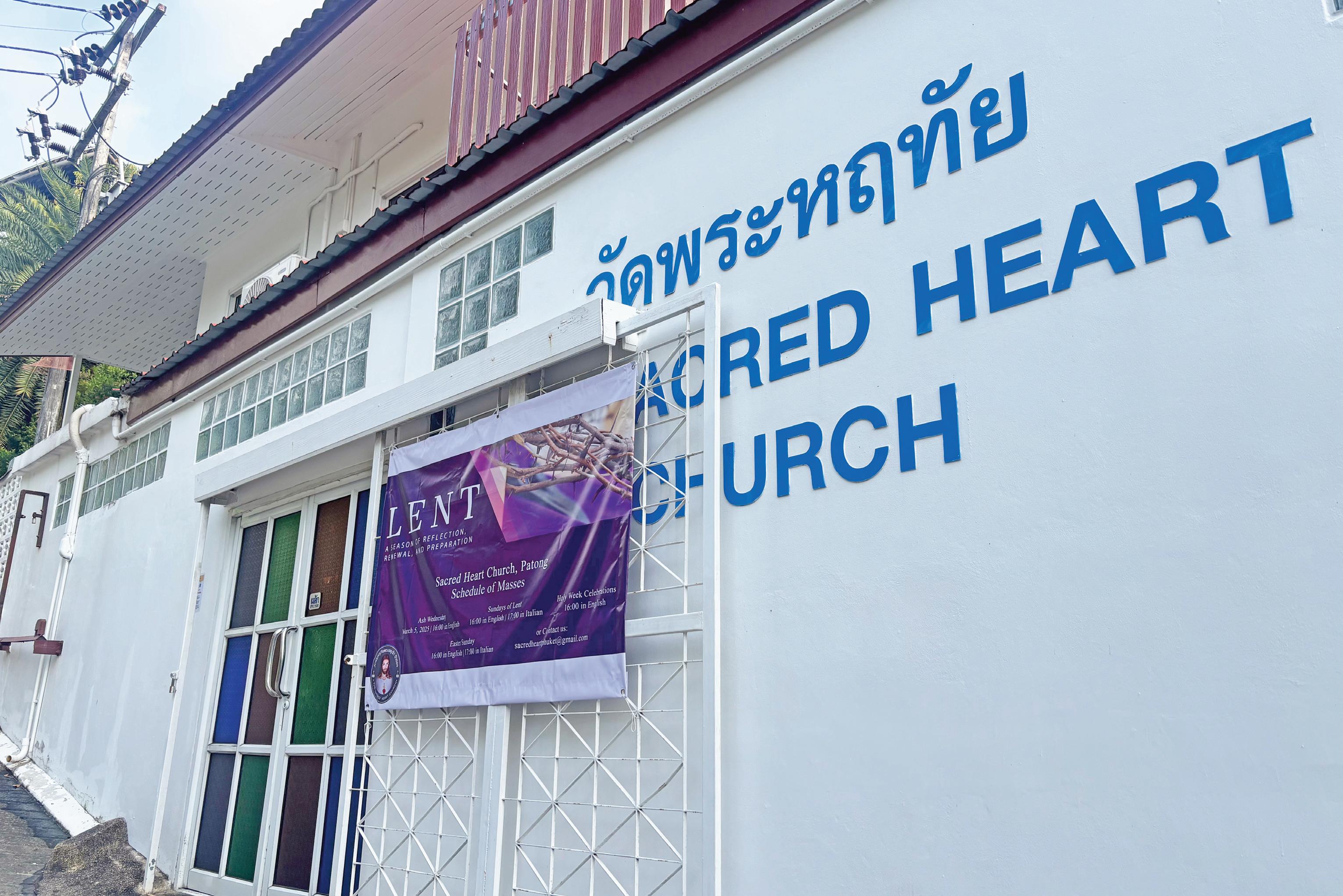
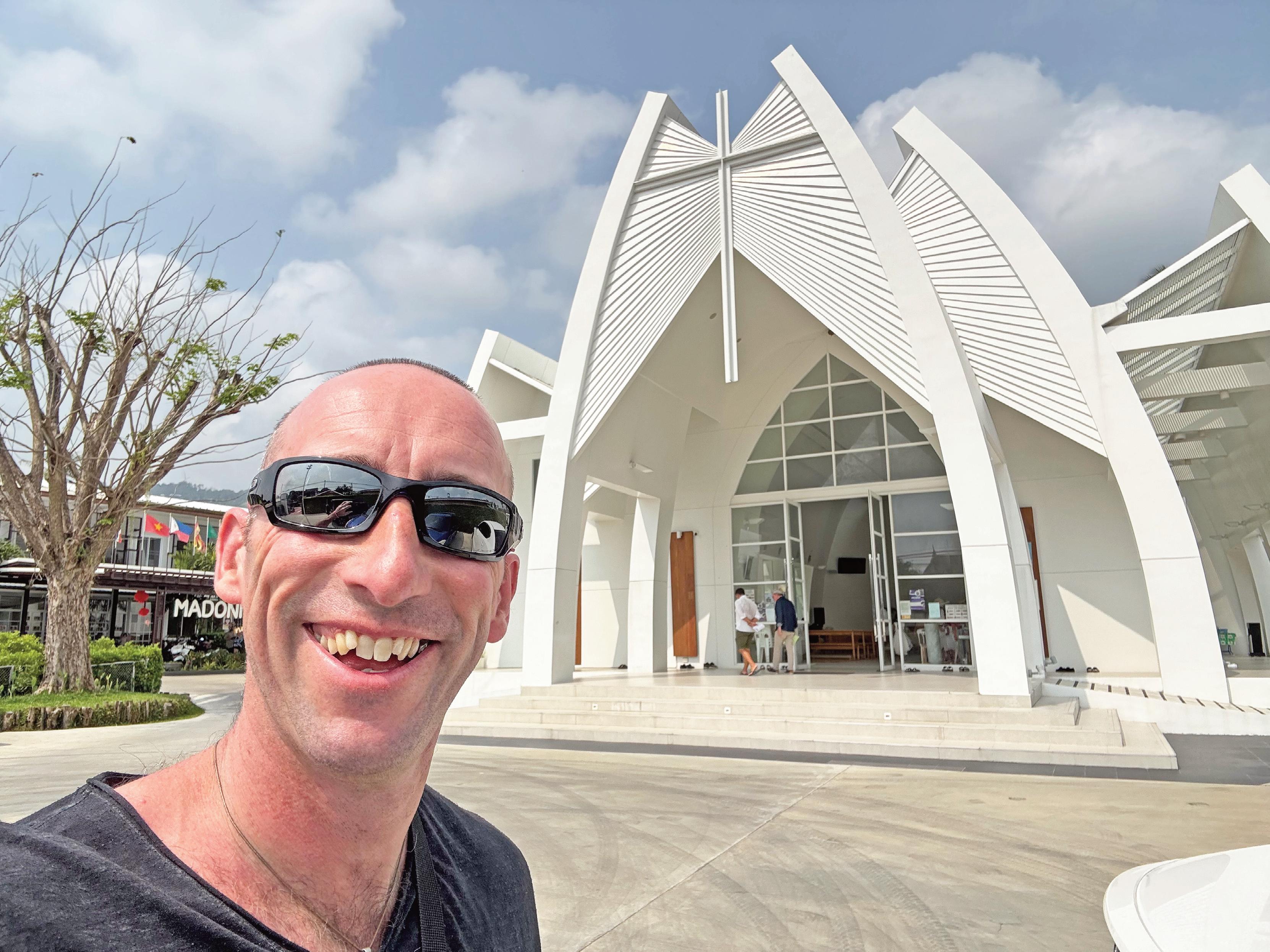
I remember once, hurtling through Bangkok in a tuk tuk, caught in the wild rhythm of the city. I asked the driver, “Aren’t you ever worried?”
He shrugged: “Karma.”
I laughed: “What about your passengers?” He smiled: “Once they step into my tuk tuk, our karmas are intertwined.”
“What does that mean?” I asked.
He just said, “Whatever happens is meant to happen.”
That moment stuck with me. In Christianity, we say, “Thy will be done.” It’s a kind of surrender — not to helplessness, but to something deeper. A letting go of ego. A trust in the unseen.
And in both teachings — East and West — I find the same truth: We shape our path, but we don’t walk it alone.
Whatever happens is meant to happen. Whatever doesn’t happen wasn’t meant to.
And what does happen — even when difficult — might just be the very thing our soul needs, though it’s not always easy to see.
So I turn inward — not to a symbol, but to an ideal: the strength of a balanced character.
The kind of peaceful steadiness that comes from surrendering ego, from grounding yourself in the now, from trusting both karma and grace.
Because in moments of chaos — like lying on a sun lounger in sunny Phuket while
hearing of earthquakes in Myanmar and a building collapse in Bangkok — it’s not heroics that carry us through.
It’s presence. It’s steadiness.
It’s doing the next right thing even when no one’s watching.
It’s moving through life with care.
It’s planting good seeds even when the harvest is uncertain.
And it’s nurturing those seeds with love and patience so that, like the ones that fall on good soil (Matthew 13:23), they grow into something fruitful — a life lived in alignment with both karma and “Thy will.”
Because while our customs may differ, and our languages, and the gods we name — beneath it all, the heartbeats are the same.
People are people. Families are families. We laugh, we grieve, we pray, we hope.
The rituals may change — but the reverence, the questions, the desire to live meaningfully — that’s universal.
So today I ask myself: Where can I be more grounded?
Where can I live with care, move with intention, and trust the process?
That’s the way forward. The way through. Call it karma. Call it grace. Call it simply being human.
Namaste — and have a great day.
Dan Sobey
A constant source of hope and inspiration, Pope Francis has profoundly shaped the very mission and the whole life of the Catholic school community, moving a generation of children and young people throughout England and Wales to put their faith into action, to care for our world and for those in greatest need.
In Laudato Si’, his cry to the world that young people demand change reflected his respect for, and belief in young people, aware that the younger generations would be hugely impacted by lack of care for the earth, ‘our common home’. This phrase that was new to many ten years ago, now has immense resonance to hundreds of thousands of children, young people and their teachers, who have taken up the challenge and responded to his call to hear the cry of the earth, and the cry of the poor.
Monica Conmee, CAFOD’s Head of Education was able to share with Pope Francis an album featuring their actions.
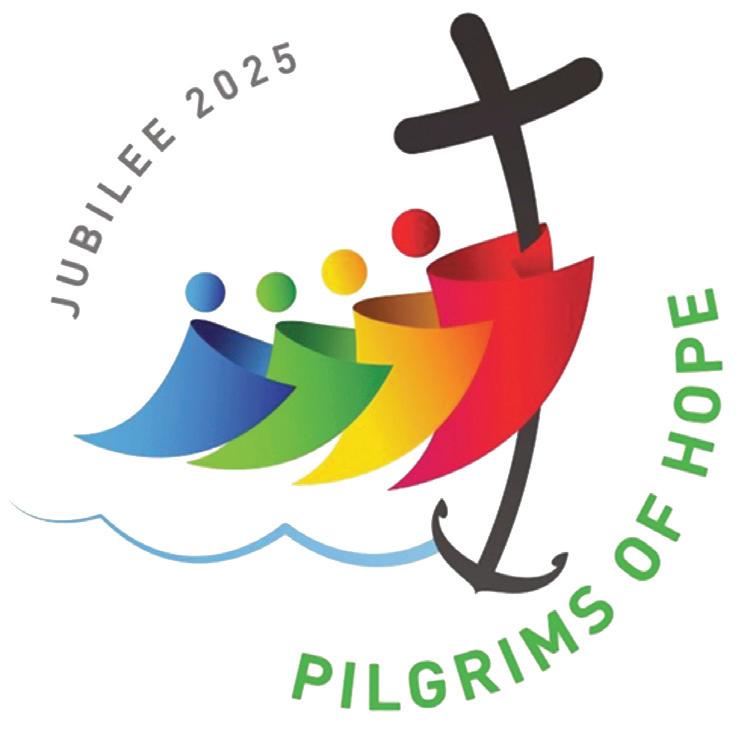
Real Hope is a deeper longing for a better world and as a resistance to pessimism because Hope sustains.
During this Jubilee Year, we are sharing stories of hope and social action from across the Diocese of Plymouth. This reflection is about a recent event in Truro led by the SVP.
On Saturday 12 April around 60 people gathered at Epiphany House in Truro to hear about “Waiting in Joyful Hope –exploring the role of Hope in our lives and those around us”, delivered by theologian and author David Wells. The day was organised by the Truro Conference of St Vincent de Paul (SVP) led by President Peter Kwee and his team. The Duchy of Cornwall Catenians made a generous donation and attended alongside people from seven parishes, including from as far away as Sidmouth, Devon.
The day began with an appetising and tasty “Full Cornish” breakfast, followed by a visit to the beautiful chapel for an inspiring opening liturgy led by Deacon Andrew Shute. David opened the first session by observing that most if not all of
“My abiding memory of meeting Pope Francis was his incredible warmth and genuine interest for each person he met. You could see his sheer joy upon hearing about children and young people from across England and Wales who had passionately embraced and responded to the message of Laudato Si’, taking action for a better world for all. The Pope's heartfelt response and encouragement were a testament to his genuine connection with young people and a powerful reminder of the profound impact that passionate, young voices can have on the world.”
There is no doubt that the impact of Pope Francis’s words can be found in every Catholic school in the country. The Catholic School Inspection Framework and the Religious Education Directory highlight the teachings of integral ecology and the culture of encounter that Pope Francis espoused in Laudato Si’ and Fratelli Tutti. His 2013 apostolic exhortation, Evangelii Gaudium, set the tone for his ministry and
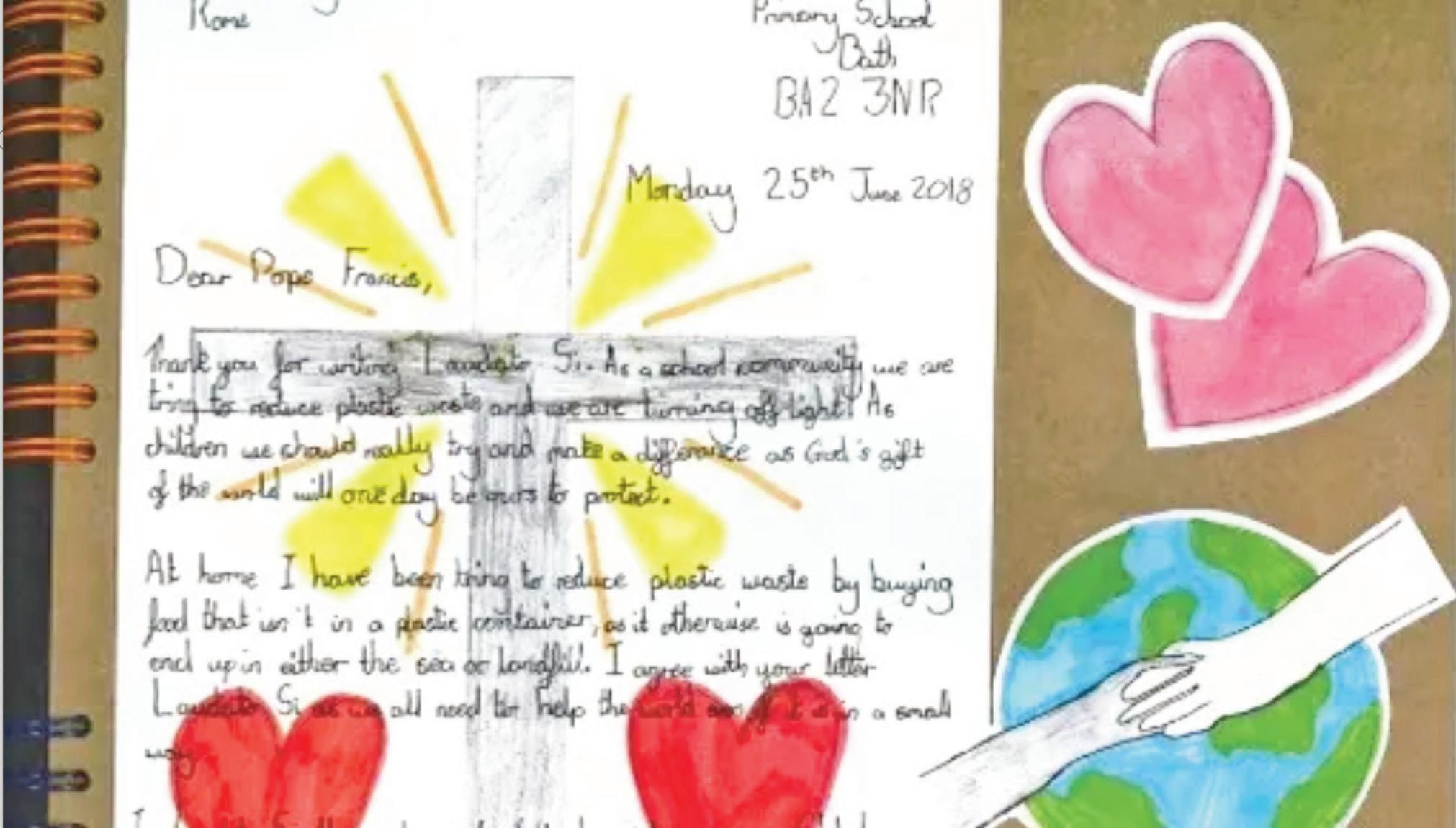
the tone for Catholic schools in England and Wales, with a focus on the joy of the gospel, a passion which served as a beacon of hope, an inspiration to continue striving for a better, more just world. How poignant it is in this Jubilee Year, as hundreds of thousands of children and young people in schools around or nations
embark on their Jubilee journey, aspiring to his invitation to be pilgrims of hope, he is now passing the baton over to these trusted young hands. There is no doubt that we are seeing the Pope Francis generation rising to this challenge; glimmers of hope are glowing as they commit to build a better world for all.
our church/parish committees gather to solve a problem. This is not what we should really be about. He defined real Hope as a deeper longing for a better world and as a resistance to pessimism because Hope sustains. David drew heavily on the recent writings of Pope Francis such as Dignitas Infinita (Infinite Dignity) and Fratelli Tutti (Brothers and Sisters All). David stressed the four characteristics of Hope: it gives you the bigger picture; it endures; it dignifies (David linked dignity with the work of SVP volunteers who restore dignity to those they help, especially the marginalised members of society); it restores. Hope is not about judgement, but about healing. Hope sees beyond present constraints.
In the many conversations, thoughts turned to SVP founder, Blessed Frederic Ozanam, who began his ministry of charity delivering logs to an elderly man in a garret. Frederic not only brought logs, but also Hope and comfort. Just as today, when members of SVP visit people, they are full of Hope, bringing it to all, showing people they are valued and respected, just as Frederic did.
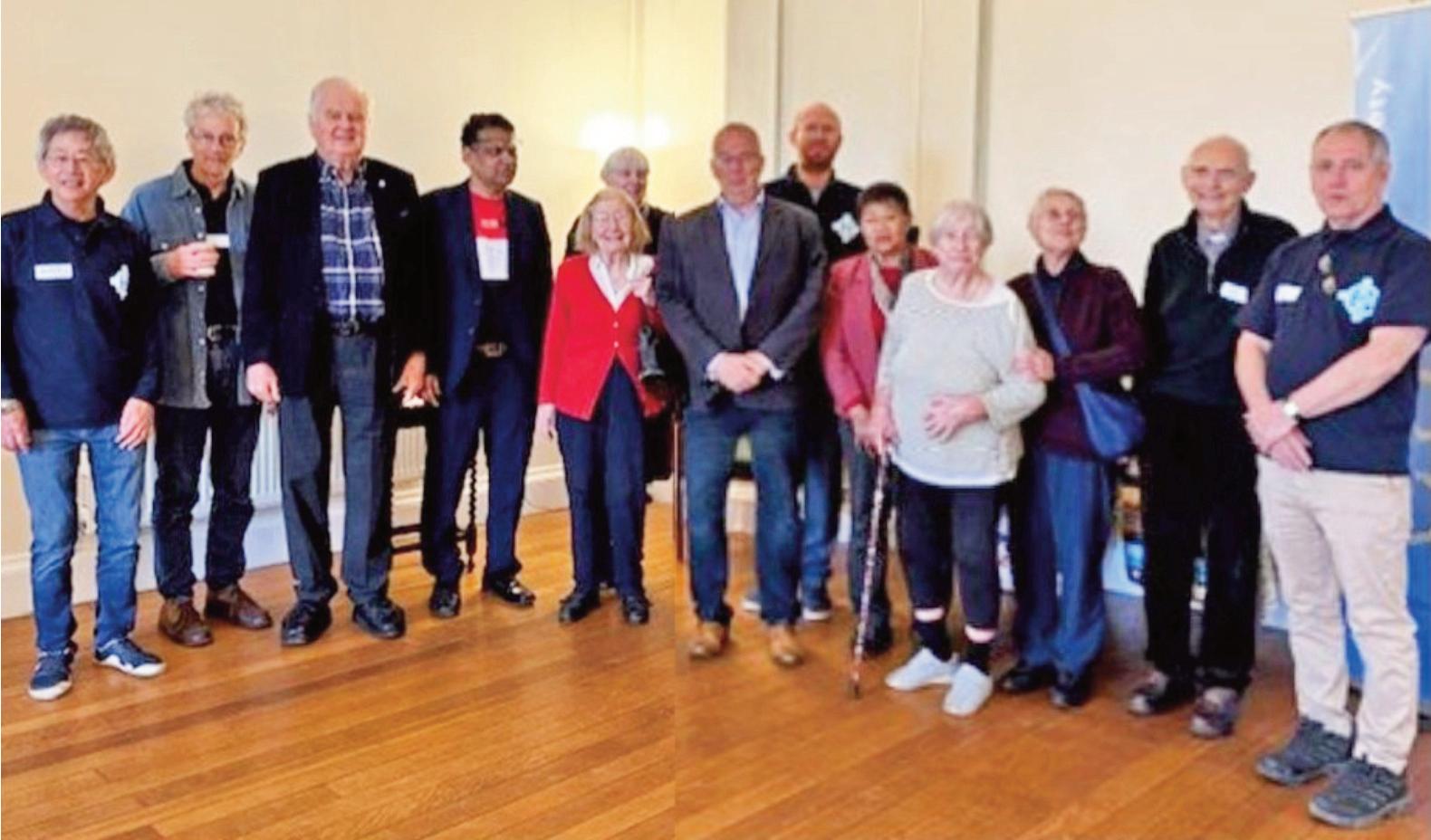
There are SVP Conferences throughout the diocese carrying out works such as visiting the sick and housebound, visiting prisons and hospitals, running welcome cafes and spaces, doing soup runs and much more. Each conference is based within a parish(es) and decides what needs to be done in consultation with their parish priests. There is still so much work to be done both in our existing
conferences as well as the need to start new ones.
If you would like to find out more about starting a conference joining SVP, please contact caritas@prcdtr.org.uk and we can put you in touch with the SVP leads in our diocese. You can also find other ways to get involved with SVP go to svp.org.uk/get-involved
Pope Francis felt that above all, a pope had to be a good communicator. Many of his quotes stay with those who heard them, here are a few on the issues that mattered most to him:
On the Church
“I prefer a Church which is bruised, hurting and dirty because it has been out on the streets, rather than a Church which is unhealthy from being confined and from clinging to its own security," 2013
“The hypocrisy of those consecrated men and women who profess vows of poverty, yet live like the rich, wounds the souls of the faithful and harms the church," 2014
On the Environment
“The Earth, our home, is beginning to look more and more like an immense pile of filth ... The pace of consumption, waste and environmental change has so stretched the planet's capacity that our contemporary lifestyle, unsustainable as it is, can only precipitate catastrophes." 2015
“The world in which we live is collapsing and may be nearing the breaking point… Despite all attempts to deny, conceal, gloss over or relativise the issue, the signs of climate change are here and increasingly evident." 2023
On Immigration
“It's hypocrisy to call yourself a Christian and chase away a refugee or someone seeking help, someone who is hungry or thirsty, toss out someone who is in need of my help," 2016
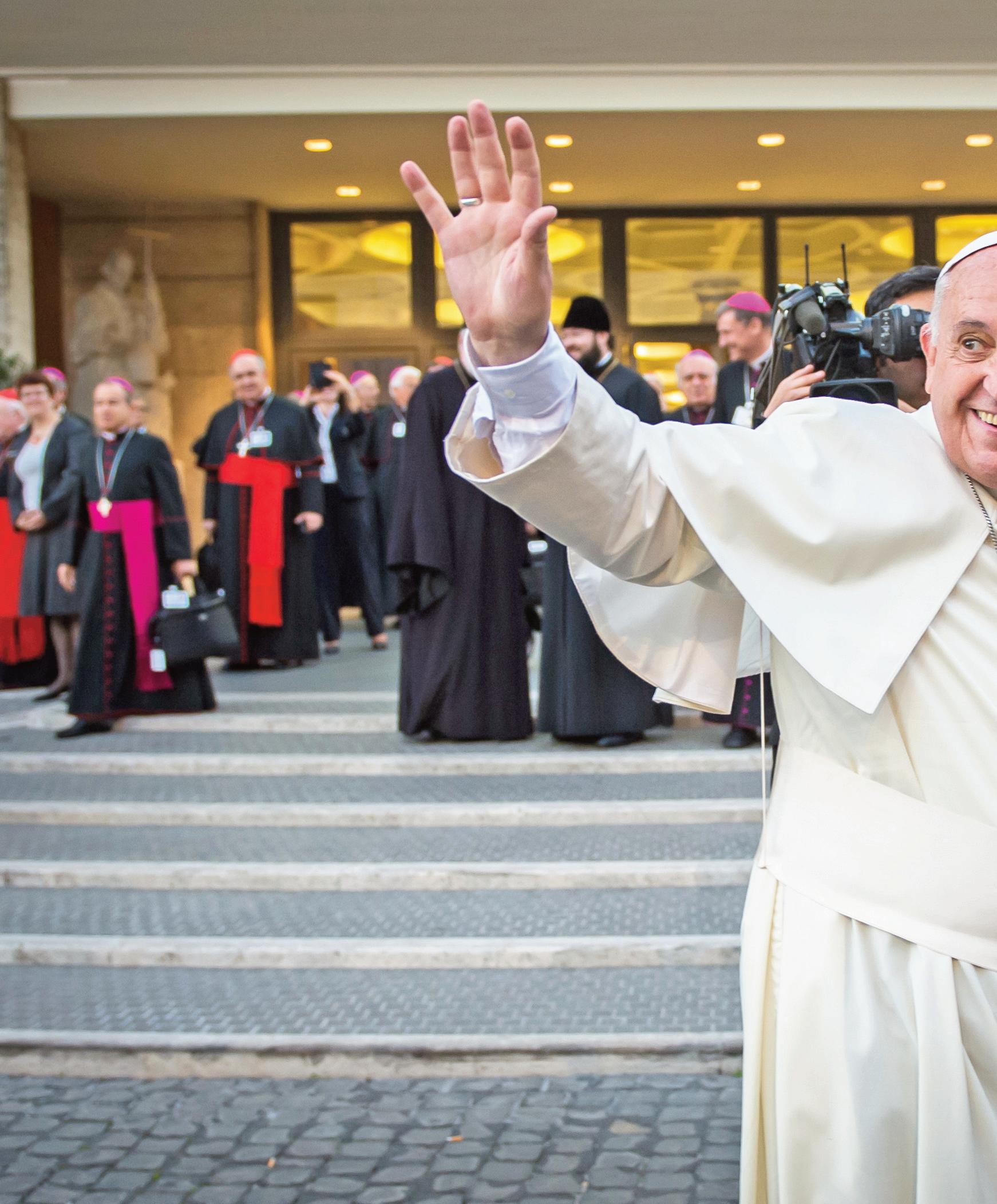
“If we are in a position of privilege, it’s better to build a longer table than a higher fence”
“It is violence to build walls and barriers to stop those who look for a place of peace," 2015
On War
“Hostility, extremism and violence are not born of a religious heart: they are betrayals of religion," 2021
“There can be no peace without freedom of religion, freedom of thought, freedom of expression." 2025
On Capitalism
“It is increasingly intolerable that financial markets are shaping the destiny of people rather than serving their needs, or that the few derive immense wealth from financial speculation while the many are deeply burdened by the consequences," 2014
On Gay Rights
“If a person is gay and seeks God and has good will, who am I to judge him?" 2013
“Homosexual people have a right to be in a family. They are children of God and have a right to a family. Nobody should be thrown out or be made miserable over it," 2020 On Women
“The struggle for women's rights is a continuing struggle. We have to continue struggling for this because women are a gift. God did not create man and then give him a lapdog to play with. He created both equal, man and woman. .. A society that is not capable of (allowing women to have greater roles) does not move forward… I have noticed that every time a woman is given a position (of responsibility) in the Vatican, things improve" 2022
On Historic Injustices
“I am sorry. I ask forgiveness, in particular, for the ways in which many members of the church and of religious communities cooperated, not least through their indifference, in projects of cultural destruction and forced assimilation promoted by the governments of that time, which culminated in the system of residential schools.” 2022
“With shame and repentance, we acknowledge as an ecclesial community that we were not where we should have been, that we did not act in a timely manner, realising the magnitude and the gravity of the damage done to so many lives…We showed no care for the little ones; we abandoned them." 2018
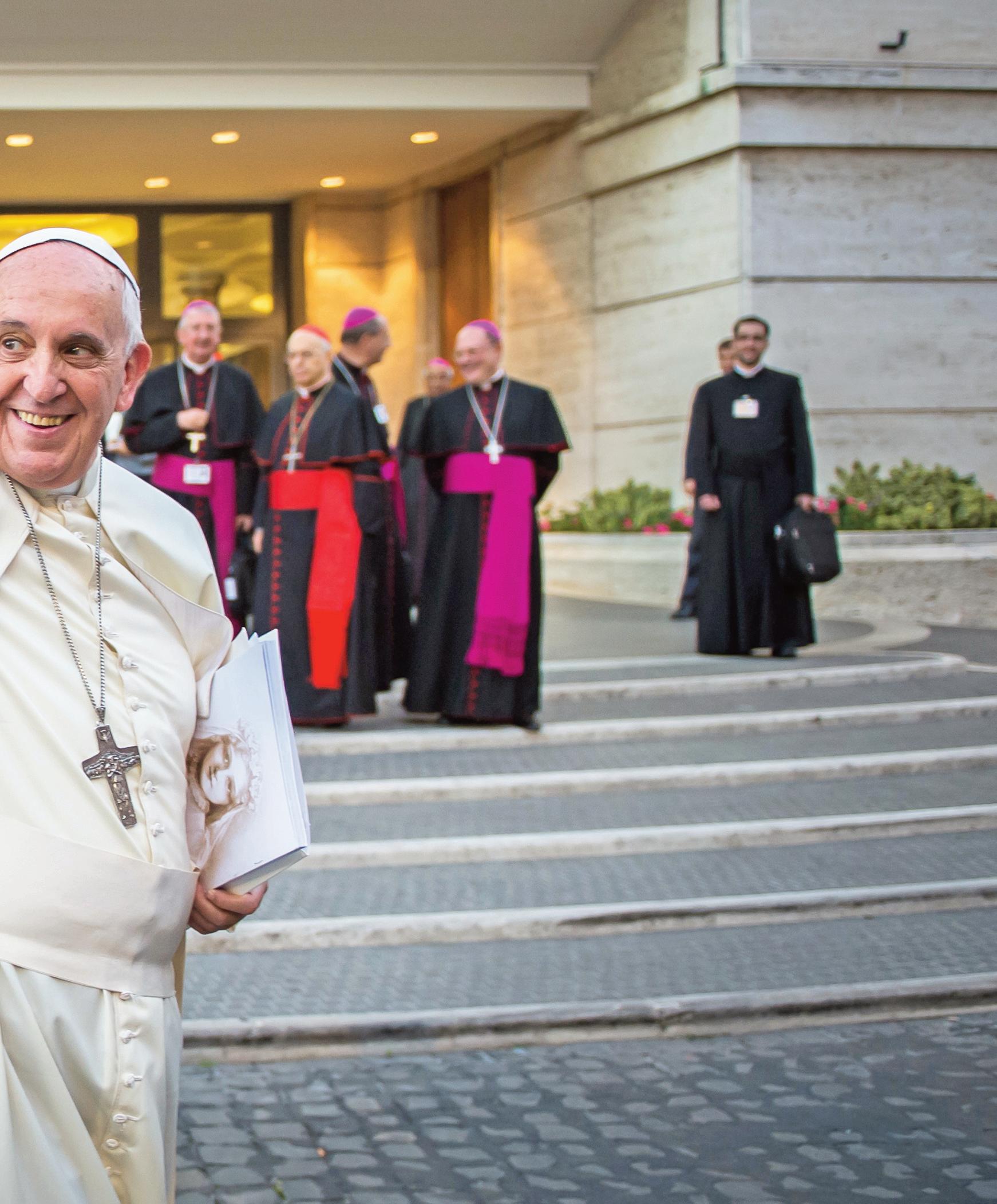
There has been an outpouring of tributes – from those you’d expect and also from those you wouldn’t. Here are a selection:
“Pope Francis was a transcendent voice for peace, human dignity and social justice. He leaves behind a legacy of faith, service and compassion for all — especially those left on the margins of life or trapped by the horrors of conflict… “he was a man of faith for all faiths — working with people of all beliefs and backgrounds to light a path forward.”
General Antonio GuterresUN Secretary
The pope “dedicated himself to the service of others, consistently revealing by his own actions how to live a simple, but meaningful, life.”
“The best tribute we can pay to him is to be a warmhearted person, serving others wherever and in whatever way we can.”
Dalai Lama
“He inspired millions, far beyond the Catholic Church, with his humility and love so pure for the less fortunate… May they find solace in the idea that Pope Francis’ legacy will continue to guide us all toward a more just, peaceful and compassionate world.”
Ursula von der Leyen –President of the European Commission
“The Pope and I had a more active relationship than was apparent. It went well beyond our respective institutional roles. We've met many times, even just to exchange opinions. He was able to give comfort in very difficult moments, I have many memories of the Pope… with whom you could talk about everything … a person who made you feel good, feel at ease. You could speak to him in a simple way, as if he were a parish priest.”
Giorgia Meloni – Italian Prime Minister
It was a moment marked not just by the solemnity of protocol or the gravity of his title, but by something far more moving – his undeniable presence, humility and the quiet power he wielded by simply being among the people.
What astounded me most during that meeting was not the solemn beauty of the Vatican’s architecture that surrounded him, but the reverence that he commanded well beyond the boundaries of his own faith. In the waiting lines were not just Catholics eager for a blessing or a handshake. There were Muslims, Buddhists, Hindus, and even the non-religious like me queuing patiently, for a brief moment with His Holiness. It was startling and inspiring to witness the hold that he had, not through coercion or command, but through sincerity, compassion, and a deep understanding of the human spirit.
Amanda Huan – a personal reflection
Upon this morning's sorrowful news, I reflected on the words of Pope Francis from five years ago. All alone in Peter's Square, the rain falling upon him in the time of the pandemic, he spoke to the empty city of Rome: “We have realized that we are on the same boat, all of us fragile and disoriented...all of us now together". A camera at that time filmed a nearby crucifix, focusing on a wet nail hammered in Christ's palm as a flying creature lifted its wings. The call of the gull broke through.
Today let us be still, all of us together in the boat, as the call of the gull breaks through.
Maureen O’Brien – a personal reflection
Pope Francis was a voice of moral clarity, spiritual courage and boundless compassion. He was in many respect the world’s conscience, never hesitating
to challenge the powerful on behalf of the vulnerable.
Mark Carney – Canadian Prime Minister
“There is so much that can be said about the significance of Pope Francis and everything he meant to the world, to the church, to the papacy. I will leave that to others. He was, in every way, a remarkable human being. He acknowledged his own failings. He radiated wisdom. He radiated goodness. He had an ironclad commitment to the good. He knew in his soul that ignorance was a terrible plague on humanity. So he never stopped learning. And he never stopped enlightening. And, he embraced, preached and practiced forgiveness. Universal and constant forgiveness.”
Martin Scorsese – Director
“He was unlike any who came before him. Pope Francis will be remembered as one of the most consequential leaders of our time and I am better for having known him, for decades, he served the most vulnerable across Argentina and his mission of serving the poor never ceased. As Pope, he was a loving pastor and challenging teacher who reached out to different faiths. He commanded us to fight for peace and protect our planet from a climate crisis. He advocated for the voiceless and powerless. He made all feel welcome and seen by the Church. He promoted equity and an end to poverty and suffering across the globe. And above all, he was a Pope for everyone. He was the People’s Pope — a light of faith, hope and love.”
Joe Biden – Former President of America
“A distinguished Argentinian Pope. Thank you for making the world a petter place; we will miss you”
Lionel Messi – Footballer
By Fr Jeremy Corley

We live in an age of space travel. Astronauts can be launched into space and even spend several months on the International Space Station. Billionaires can book a ticket for a flight into space for a few minutes. Unmanned space probes are exploring ever further across the solar system. There are dreams of sending a manned spacecraft to land on Mars.
Humans have always been fascinated by space – the vast expanse above us in the skies, with the moon and stars. Although modern scientists have sent probes to explore the planets and galaxies nearest to earth, there are distant constellations and supernovas that are far beyond human exploration at the moment.
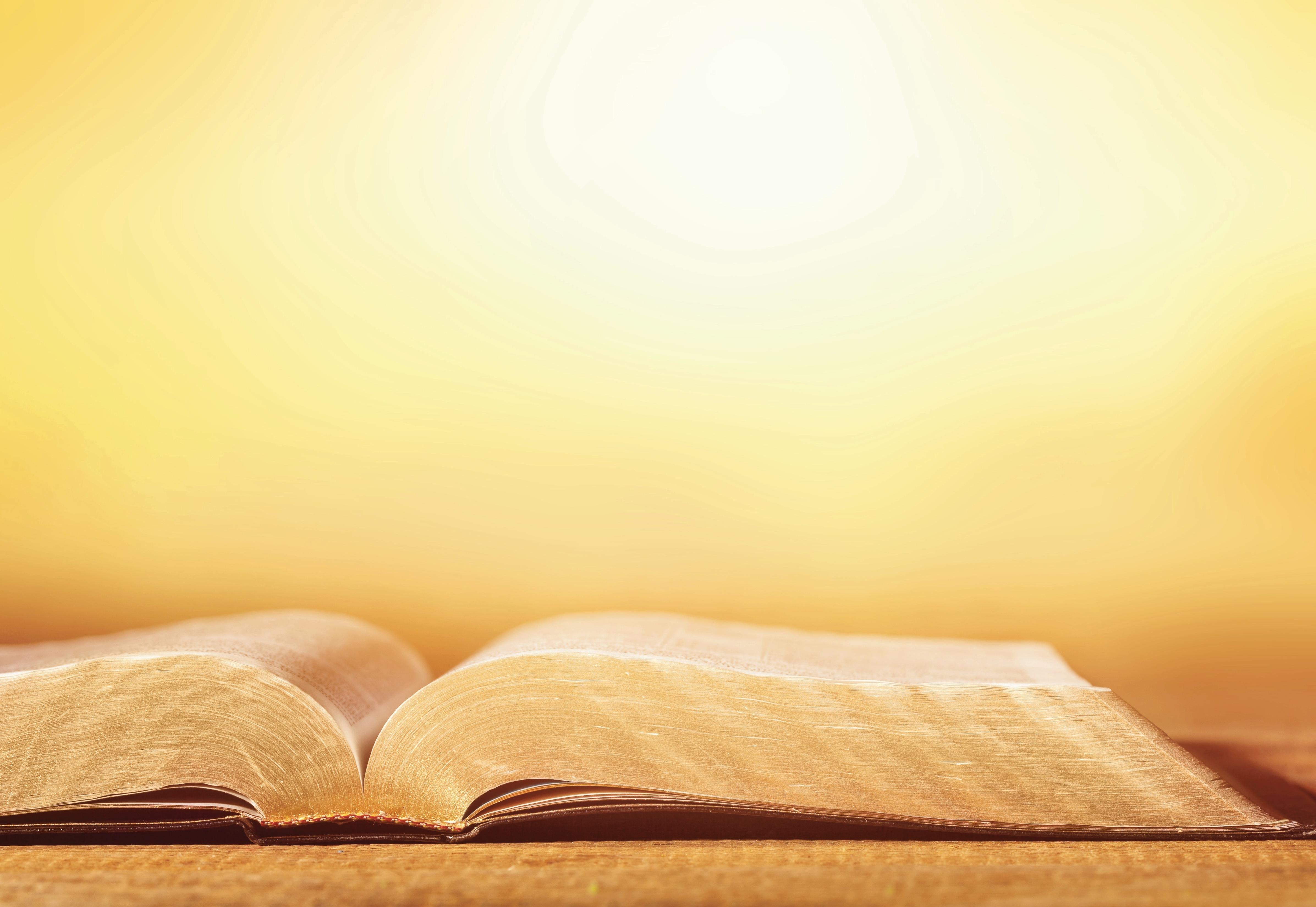
For the ancient pagans, the heavens were the abode of the gods. For the Jews of biblical times, heaven was the dwelling place of God. But we do not have to understand this in a geographical sense. God is vast and limitless, like space. God is above us and around us, like space. God is almighty and beyond our control, like the forces from space.
Near the end of May we celebrate Ascension Thursday (29th May), when Jesus bids farewell to his disciples. The Acts of the Apostles portrays Jesus ascending into heaven, until the cloud of God’s presence hides him from their sight. But we do not need to understand it geographically as a case of space travel –how many miles did Jesus go upwards from the earth? Instead, this is the final appearance of Jesus after his


resurrection. As he bids them farewell in Luke’s gospel account, he blesses them and tells them to wait prayerfully for the coming of the Holy Spirit.
He makes them a wonderful promise in the gospel: in a short while they will be clothed with power from on high. What they would be unable to do by human power, the Holy Spirit would enable them to do. They would be given the power to live like Jesus and spread his love and forgiveness to those around them. They would receive the strength to endure in times of opposition and hardship. And sometimes they would be given the power to heal the sick.
\ The first apostles would be his witnesses in Jerusalem, and then close by in Judea and Samaria. Thereafter his followers
would spread the Christian message across the Mediterranean – and the Acts of the Apostles tells us of the apostle Paul arriving to preach in Rome. In later times, right up till today, the good news of Jesus would be proclaimed all over the world.
We cannot live as Christians without the power of the Holy Spirit, first given to each of us in baptism and confirmation. As we look forward to Pentecost, we pray that the Holy Spirit may continue to inspire us to follow Jesus. May the Holy Spirit help us to live by Christ’s teaching and bear witness to him by our actions towards family and work colleagues and in our community.
Come O Holy Spirit, fill the hearts of your faithful, and enkindle in them the fire of your love!



He did not wear a crown or cloak of gold. He stepped aside from glory, left the throne.
He spoke of welcome to the ones who'd failed and washed the feet of those who'd turned away. He loved the lost and sought the words that would remind the powerful of their call to love. And still, when failing on his final road, he spoke words filled with comfort, faith and hope.
In this he mirrored in his every step The master whom he served with gracious joy. And then this servant, stewarding the world, invited us to see, with clearer eyes, the one who waits upon the dusty road. And now runs swift to welcome home his son.
Fr Mark Skelton’s
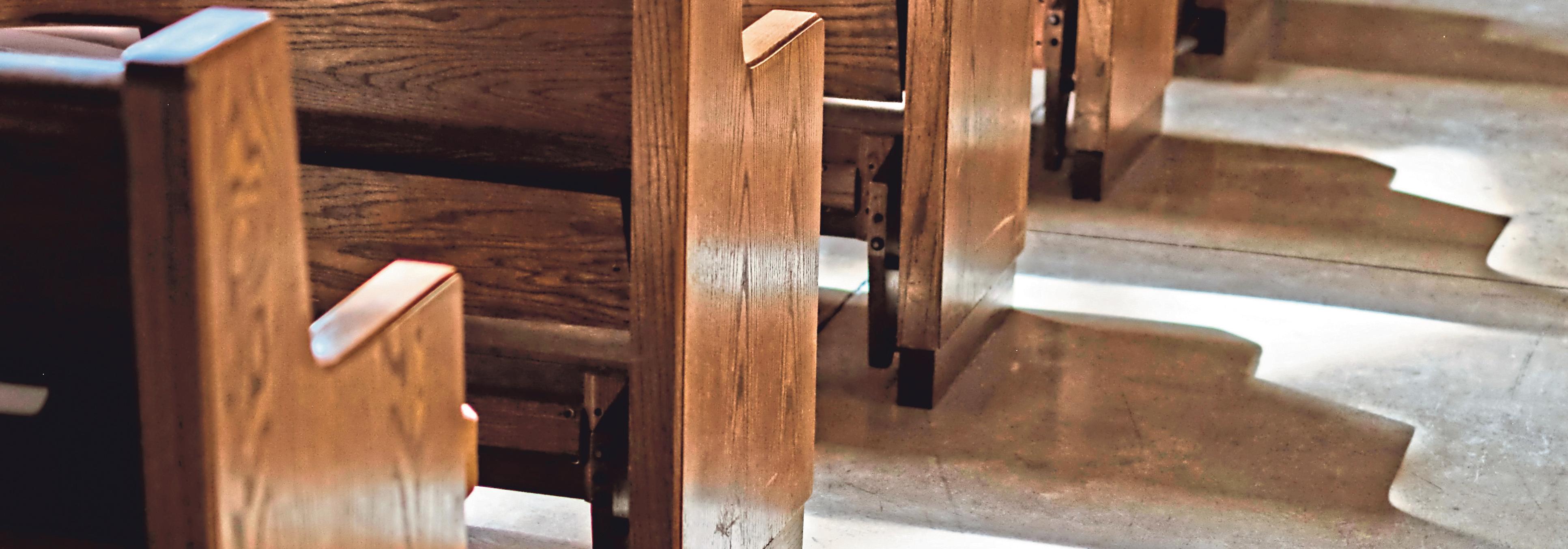

By Dr Jay Kettle-Williams

The people of the region had already been given the 10 Commandments which, dating back to the time of Moses in the 13th century BC, gave instructions as to what they shouldn’t take from others or deprive others of. Some eleven centuries later, two thousand years ago, Christ then assured the masses of the Beatitudes, the blessings to be bestowed upon those amongst them. He gave the traders their comeuppance, throwing them out of The Temple. Turning to the fig tree, He condemned it for not fulfilling its potential. So Christ would have been seen by some, if not by many or by all, to be violently rocking the proverbial boat, giving a forceful spin to the moral, let alone the political compass, sending it this way and then that, throwing society totally off balance. Little wonder, then, that He is often referred to as the ‘greatest revolutionary of all time’.
As for an individual’s personal standing politically, rather than that of society at large, I can’t say whether it boils down to nature or to nurture. But inheritance must surely play a part, not to mention environment. When it comes to my own political standing, I suppose it’s best clarified and summed up by an anecdote about my father. Whenever asked where he stood politically, he would simply reply, ‘On what subject?’ So, like father, like son. And that makes me wonder what else we inherit, in what image and to what degree.
My father’s musical abilities, albeit limited as they were, failed miserably to pass down the line. I remember he did have a banjo which I never heard him play. I did use it when very young to climb the garden fence. I slipped and put my foot through the head of the banjo. That put an end to that. But I did join a group playing the recorder when at infant school. Being the only boy, I soon put an end to that. I also turned my hand to playing the piano. That was untiI I went to ‘big school’, when we moved house. That put an end to that. But my mother was more musical. She could play the
For me to start singing in Church has always been a sure-fire way of identifying those with a sense of humour. Others have been known to move away or simply get up and leave. Musically I am an absolute Philistine. I leave ‘proper’ singing to my wife and daughter. Yet I have long and dearly enjoyed one particular genre of music, that of the psalms and plainchant such as regularly associated with Pope Gregory I.
Pope Gregory I, perhaps better known as Saint Gregory the Great, was the 64th Bishop of Rome from 3 September 590 until his death on 12 March 604 AD. He is known inter alia for instituting the Gregorian mission, the first recorded large-scale mission from Rome, to bring Christianity to the generally pagan Anglo Saxons of that period. Gregory is also known for being a prolific writer.
The wonders of Gregorian chant are attributed to the central tradition of Western plainchant, a form of monophony, unaccompanied sacred song in Latin (and occasionally in Greek), identified with our Roman Catholic Church. Gregorian chant developed mainly in western and central Europe, not so much among the Eastern Orthodox, during the 9th and 10th centuries, with later additions and redactions. Although popular legend credits Pope Gregory I with either inventing or launching Gregorian chant, scholars believe that it arose from a later Carolingian synthesis of or hybridisation, under the Frankish dynasty, between the Old Roman chant and Gallican chant, i.e. of Gaul, latterly France.
Apart from the PSALMS, those sacred songs and sacred poems designed to be sung, composed and passed down from between 1500 BC and the post-exilic period (around 500 BC), we know very little about the song and music which would have been known to Jesus.
What fragments of written music that do exist from anywhere in the world at the time

are open to interpretation as to exactly how they would have sounded.
But, when it comes to the instruments themselves, we do have a few written descriptions, along with images of musicians playing all manner of instruments. Those performers could well have been precursors of the latter-day troubadours who, during the High Middle Ages (1100-1300), composed and gave public performances of Old Occitan lyric poetry.
Whether in formal gatherings or around the hearth at home, music has always been an intrinsic cultural ingredient of human society. Songs have always been sung and dances have always been performed in time with rhythmic music.
I can’t help but wonder to what degree the established, traditional Jewish music, song and dance of today echoes the ‘popular music’ to which those of Jesus’ time would have tapped their feet, clapped their hands, sung along or danced to. Now, there’s a thought.

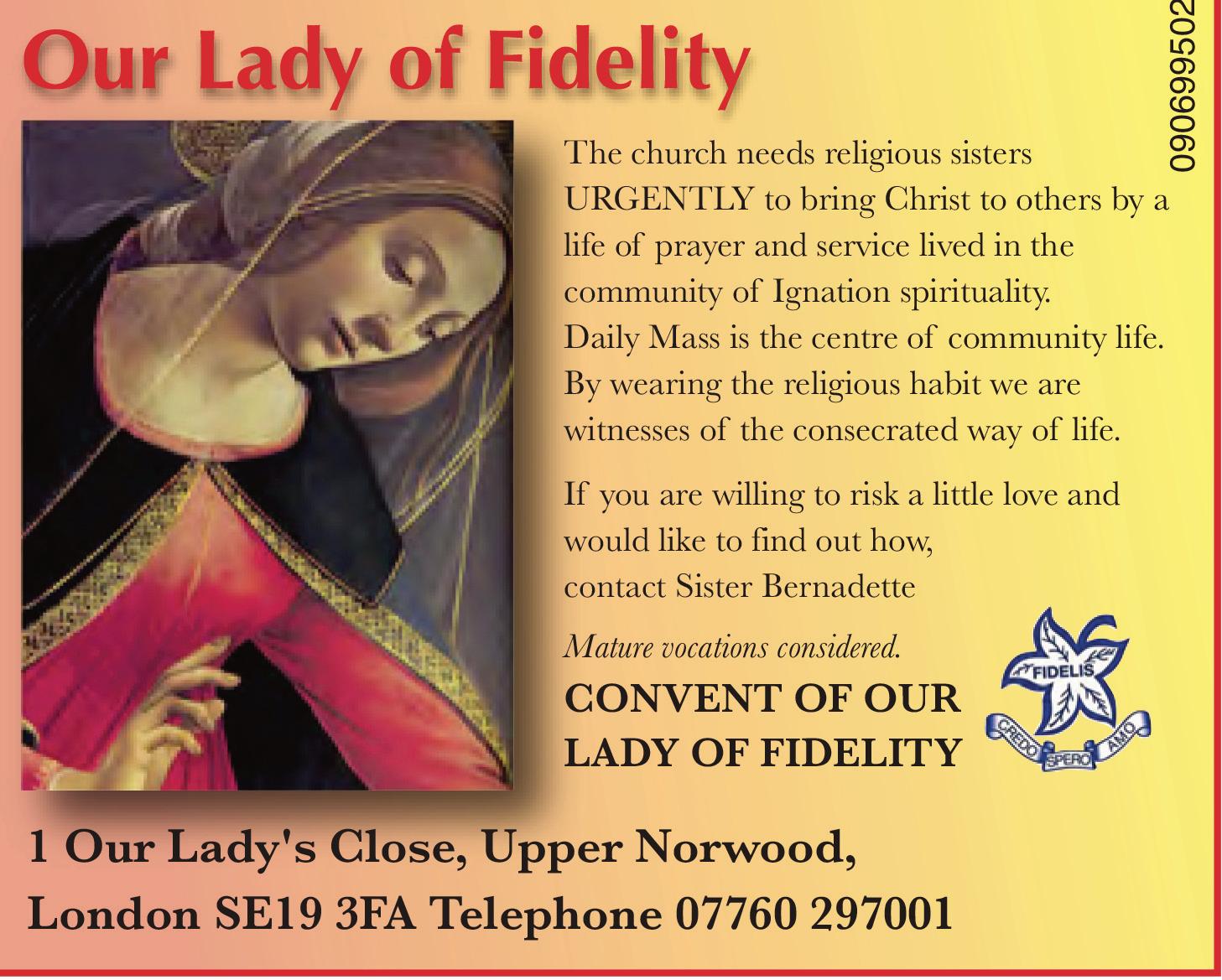




Known for his sense of fun, Pope Francis wrote an essay for the New York Times on the importance of fostering a sense of humour, of quelling narcissism through “appropriate doses of self-irony,” and of avoiding “wallowing in melancholy at all costs.”
“The Gospel, which urges us to become like little children for our own salvation (Matthew 18:3), reminds us to regain their


ability to smile,” Pope Francis wrote in an essay adapted from his new book, “Hope: The Autobiography,” which was published earlier this year.
The pontiff called the many children he meets, as well as the elderly, “examples of spontaneity, of humanity.”
“They remind us that those who give up their own humanity give up everything, and that when it becomes hard to cry seriously or to laugh passionately, then we really are on the downhill slope. We become anesthetised, and anesthetised adults do nothing good for themselves, nor for society, nor for the Church,” he wrote.
“Irony is a medicine, not only to lift and brighten others but also ourselves, because self-mockery is a powerful instrument in overcoming the temptation toward narcissism,” the pope continued.
“Narcissists are continually looking into the mirror, painting themselves, gazing at themselves, but the best advice in front of a mirror is to laugh at ourselves. It is good for us. It will prove the truth of that old proverb that says that there are only two kinds of perfect people: the dead and those yet to be born.”
Pope Francis has spoken about humour several times throughout his papacy; in June of this year, he hosted and entertained a group of over 100 comics, stand-up comedians, and humourists in the largest — and possibly only — gathering of comedians in the Vatican since Pope Pius V eliminated the role of the papal jester in the 1500s.
During a recent visit with French President Emmanuel Macron in Corsica, Pope Francis recommended that Macron


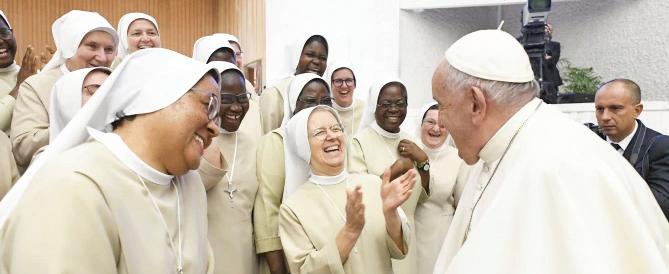
read his apostolic exhortation Gaudete et Exultate, drawing attention to a passage referencing St. Thomas More’s prayer for a sense of humour.
“Lord, give me a sense of humour. Grant me the grace to understand a joke, to discover in life a bit of joy, and to be able to share it with others,” reads the prayer, which Pope Francis has previously described as “very beautiful” and recites daily.
The pope in his essay offered examples of good humour shown by his fellow popes St. John XXIII and St. John Paul II.
St. John XXIII, for example, was said to have showcased his self-deprecating wit when he joked that he often resolved to speak with the pope about serious problems before remembering “that the pope is me.”
Relaying an anecdote about St. John Paul II’s playful resistance to rigid expectations of clerical conduct, Francis wrote that the saint was once, while still a cardinal, rebuked for enjoying many outdoor sporting activities, whereby John Paul responded that “these are activities practiced by at least 50% of cardinals.” In Poland at the time, there were only two cardinals.
“Sometimes we (popes) unfortunately come across as bitter, sad priests who are more authoritarian than authoritative, more like old bachelors than wedded to the Church, more like officials than pastors, more supercilious than joyful, and this, too, is certainly not good,” the pope wrote.
“But generally, we priests tend to enjoy humour and even have a fair stock of jokes and amusing stories, which we are often quite good at telling, as well as being the object of them.”
The pope in his essay also told a joke involving himself, printed here in its entirety: As soon as he arrives at the airport in New York for his apostolic journey in the United States, Pope Francis finds an enormous limousine waiting for
him. He is rather embarrassed by that magnificent splendor, but then thinks that it has been ages since he last drove, and never a vehicle of that kind, and he thinks to himself: OK, when will I get another chance? He looks at the limousine and says to the driver, “You couldn’t let me try it out, could you?” “Look, I’m really sorry, Your Holiness,” replies the driver, “but I really can’t, you know, there are rules and regulations.”
But you know what they say, how the pope is when he gets something into his head … in short, he insists and insists, until the driver gives in. So Pope Francis gets behind the steering wheel, on one of those enormous highways, and he begins to enjoy it, presses down on the accelerator, going 50 miles per hour, 80, 120 … until he hears a siren, and a police car pulls up beside him and stops him. A young policeman comes up to the darkened window. The pope rather nervously lowers it and the policeman turns white. “Excuse me a moment,” he says, and goes back to his vehicle to call headquarters. “Boss, I think I have a problem.”
“What problem?” asks the chief.
“Well, I’ve stopped a car for speeding, but there’s a guy in there who’s really important.” “How important? Is he the mayor?”
“No, no, boss … more than the mayor.”
“And more than the mayor, who is there? The governor?”
“No, no, more. …”
“But he can’t be the president?”
“More, I reckon. …”
“And who can be more important than the president?”
“Look, boss, I don’t know exactly who he is, all I can tell you is that it’s the pope who is driving him!”
By Jonah McKeown catholicnewsagency.com
We are honoured & delighted to collaborate with LOUDfence UK in launching this synodal Jubilee campaign inspired by Lourdes, which invites pilgrims to share pilgrimage pictures with the hashtag #pilgrimsofhopeandhealing and #iwillnotforsakeyou to show and cultivate support and compassion for survivors of abuse.
On hearing the news from Lourdes Antonia Sobocki, LOUDfence UK CEO, wrote the following: 'To all those wonderful people who spoke out in defence of Sr Samuelle and the other sisters, thank you so very much. I think most specially of Canon Paul and everyone at Plymouth Diocese, Bishop Stephen and everyone in Hexham and Newcastle Diocese and Archbishop John and the Archdiocese of Southwark. Thank you for caring. Thank you for taking a stand. We thank God for the mercy and care demonstrated by Bishop Jean-Marc Micas and the Lourdes Commission when they chose to prioritise survivors of abuse by covering the doors of the Rosary
Chapel in Lourdes. This means those who found passing through the doors of Lourdes past Marko Rupnik's mosaics was just too traumatic, may now pass unhindered. Could all pilgrims to Lourdes this year take a photo of themselves in front of the covered doors of the Rosary Chapel and then post the images online with the hashtags
#PilgrimsOfHopeAndHealing and #IWillNotForsakeYou Please remember to say a prayer for survivors and those who advocate for them. Lourdes is a beacon of Hope and Healing for everyone. Thank you for your care and support.'Antonia Sobocki
Our safeguarding team have also shared the following message: 'We are very supportive of this action, as we believe that it is essential for the voices of victims and survivors to be listened to.'
If anyone has been affected by this, please contact the Safeguarding Office on 01364 645430.

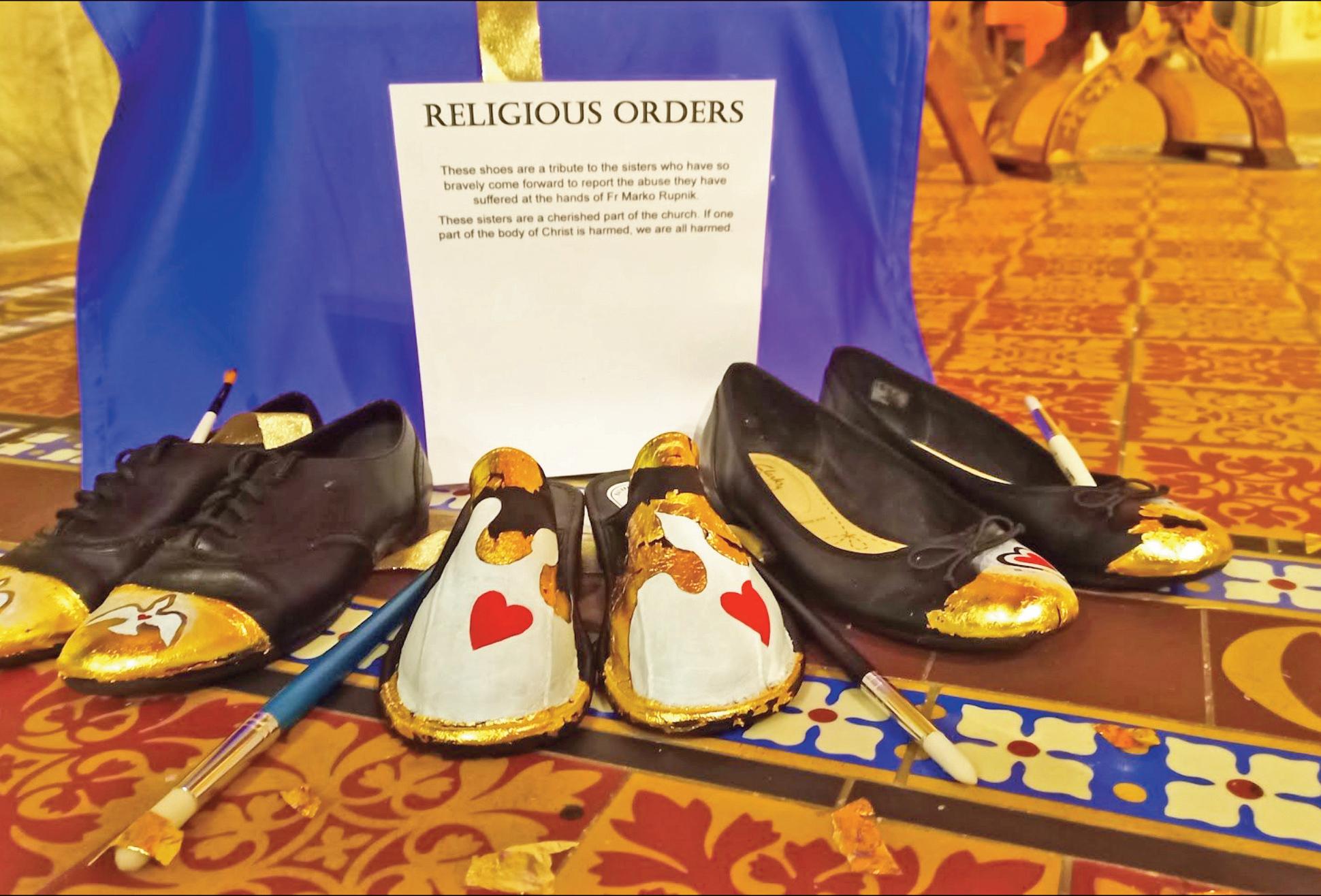

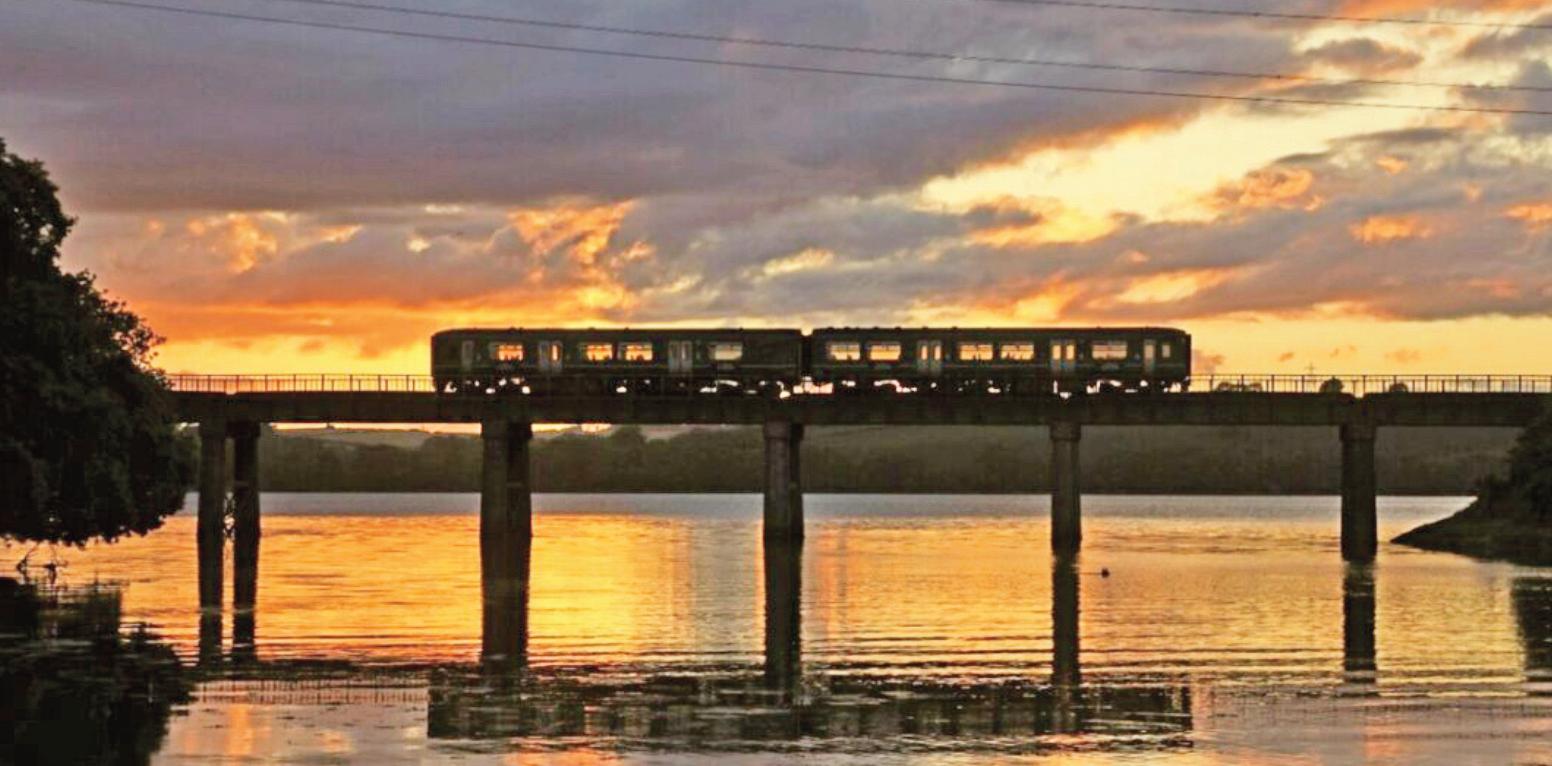
The third annual review of the Diocese of Plymouth Environmental Policy gives a brief overview of progress being made to implement the commitments in the policy. It is just a snapshot of some of the amazing work happening across the diocese. One of the social action themes of the Jubilee Year is care for creation. This year we are invited to pray and reflect on how we are addressing creation care, climate change and the environment.
We are guardians of life and creation and, indeed, intimately connected to the natural world around us. The problems facing us are many, varied and interrelated, as are the variety of responses that are required from us. But essentially, we need a heart shaped by our discipleship of Jesus. One that loves
God, neighbour, and the natural world around us.
This report shares the wonderful variety of initiatives and efforts being made in our parishes, schools and the wider community, to respond to the call for change and bring healing and flourishing to God’s creation. Please let caritas@prcdtr.org.uk know what you are doing as a Church, and as individuals, to bring harmony and repair to our relationship with God’s creation. We would love to hear from you.
May the work that has already been taking place in our own diocese, reflected in this review, be a help and inspiration for us all in being guardians of life and creation.
12 May 2025 Catholic South West
The Sanctuary Foundation have released a video to commemorate the 80th anniversary of the death of Dietrich Bonhoeffer, just weeks before the end of the Second World War.
Bonhoeffer was deeply concerned about those suffering because of war. He not only helped those who were fleeing, but also challenged the Nazi regime about its xenophobic stance against immigrants living in their country. Six million Jews and other minorities and critics were executed in the war - Dietrich Bonhoeffer was one of them.
Tom Hanks, Hollywood legend, features in this video narrating a poem Bonhoeffer wrote shortly before his death. Clearly suffering from anxiety and self-doubt, it is a poignant reflection on identity, humanity and faith.
Hear Tom Hanks reading ‘Who Am I’ scan the QR right

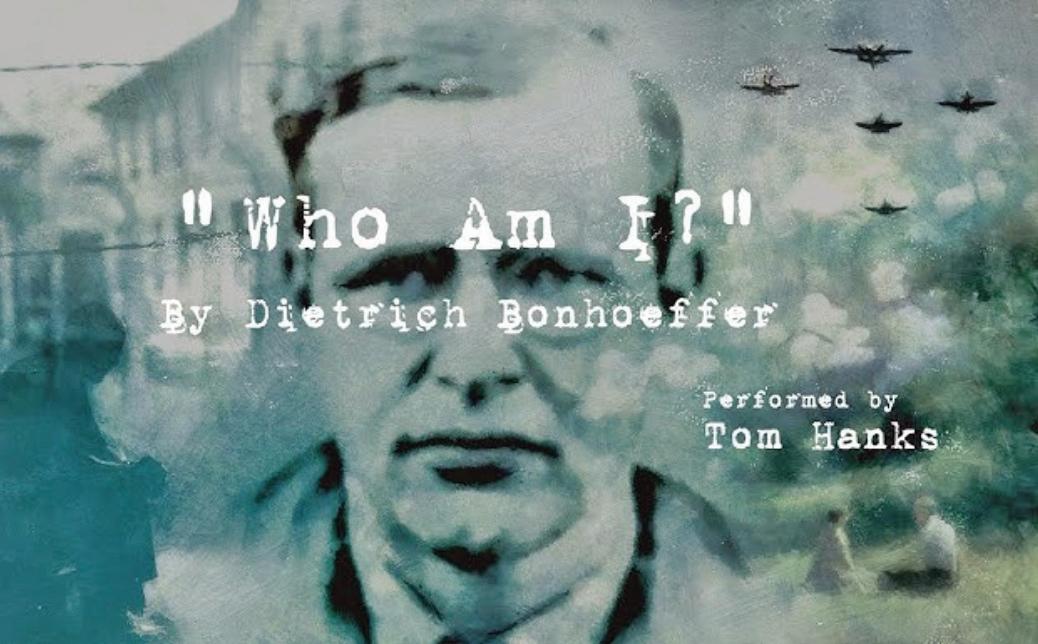

You can use both sets of clues to solve the puzzle: the solutions are the same.
1 Enemy of Gideon's defeated during the witching hour, said one (9)
6 Musical about a High Priest (7)
7 Riddle to penetrate? (5)
9 Change in a little while going back to protect the testament (5)
10 Fielder's body parts used to take wickets in the end (3,4)
11 Foot part's essential to dancing, they say (6)
13 Grand aura about directions for the Holy Roman Emperor (6) 16 Hymn book each sailor kept (7)
18 One has a habit of getting into minicab bother (5)
20 Harsh being back at sea (5)
21 Bigbrewersarenuts,ridiculous(3-4)
22 Tyre here company backs after one phone order (9)
CRYPTIC Down
1 Recommendation when weather's bad in French wine area? (5)
2 Poles follow east Maine river banks to estate (7)
3 Saint Poles back from 2, and the Spanish, see in the morning (6)
4 One's no good in charge at first, but is very sweet (5)
5 Christian Roman's spreading mostly rubbish between Europe and America (7)
6 Paul's fellow soldier damaged pup's chair (9)
8 It runs in Iraq on Brussels tariffs top two phones supported (9)
12 Disturbance with fish supper only half wolfed down (5-2)
Spooks wreck a comeback, totally, for ancient language (7)
15 Frenchman's to the fore in Brexit – real European traditionalist on nationality (6)
17 'Beat retreat' code-word (5)
19 Gunners in the ascendant during support for Hebridean island (5)
QUICK Across
1 One of a tribe from whom Moses took a wife (9)
6 High Priest who opposed the Maccabees (7)
7 Soak;suffuse(5)
9 Eurofractions?(5)
10 Close fielding position in cricket (3,4)
11 Arch area of the foot (6)
13 The ------'s War: alternative, now dated, name for World War I (6) 16 Book of hymns or poems associated with the Old Testament (7)
18 Archimandrite;prelate(5)
20 Demanding;forbidding(5)

5 Roman Christian who sent greetings to Timothy via Paul... (7)
6 ...and Christian at Colossae cited by Paul (9)
8 Western river boundary of Mesopotamia (9)
12 Organize a new restructure(5-2)
14 Language probably spoken by Christ (7)
15 French, previously Armorican (6)
21 Large vats for steeping and serving beverages (3-4)
22 Ancient Levant maritime country with ports at Tyre and Sidon (9)
QUICK Down
1 Town noted for its Chardonnay and Pinot Noir/Gamay Burgundies (5)
2 Manorhouse;estate(7)
3 Abbot of Bec who became Archbishop of Canterbury in 1093 (6) 4 Cupcake topper (5)
17 Staccato, energetic, South American dance (5)
19 Outer Hebridean island home of Dad's Army's Private Frazer (5)
SOLUTION